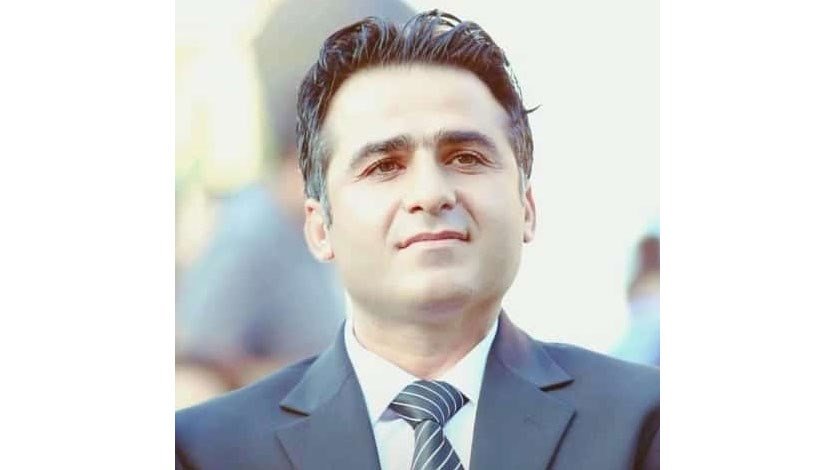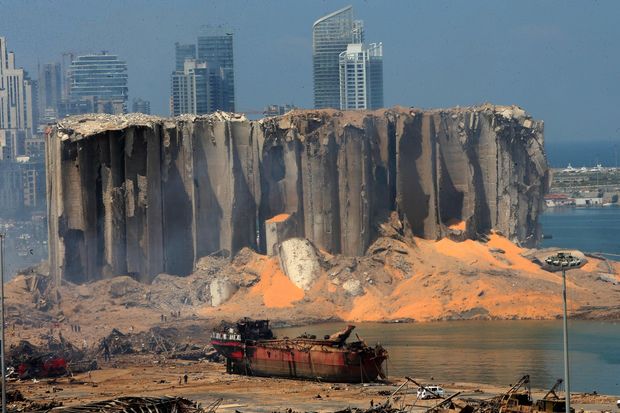Lebanon Minister of Public Works Ali Hamie announced on Thursday that the reconstruction of Beirut Port will start at the end of August this year, just over 2 years after the blast
In a tweet, which included a video, Hamie wrote on his Twitter account: “To the whole world we announce: The reconstruction of the Port of Beirut will be launched by the end of August 2022 on the basis of a master plan that utilizes every square meter in it.”
للعالم أجمع نعلنها :
— Ali Hamie | علي حمية (@alihamie_lb) June 9, 2022
ورشة #اعادة_اعمار_مرفأ_بيروت ستنطلق بحلول نهاية آب عام ٢٠٢٢ على أساس مخطط توجيهي نستثمر من خلاله كل متربع مربع فيه #مرفأ_بيروت عصي على الدمار pic.twitter.com/T5QTTwMBFH
He added, “Beirut’s port is resilient to destruction.”

Hamie, who also holds a French citizenship, represents the Shiite Duo of Amal and Hezbollah in the Ministry of the government of PM Najib Mikati.
On 4 August 2020, a large amount of ammonium nitrate which was illegally stored at the Port of Beirut in the capital city of Lebanon exploded, causing at least 218 deaths, 7,000 injuries, and US$15 billion in property damage, and leaving an estimated 300,000 people homeless. A cargo of 2,750 tonnes of the substance (equivalent to around 1.1 kilotons of TNT) had been stored in a warehouse without proper safety measures for the previous six years after having been confiscated by the Lebanese authorities from the abandoned ship MV Rhosus. The explosion was preceded by a fire in the same warehouse, but as of September 2021, the exact cause of the detonation is still under investigation.
The blast physically shook the whole country of Lebanon. It was felt in Turkey, Syria, Palestine, and Israel, as well as parts of Europe, and was heard in Cyprus, more than 240 km (150 mi) away. It was detected by the United States Geological Survey as a seismic event of magnitude 3.3, and is considered one of the most powerful accidental artificial non-nuclear explosions in history.
In its aftermath, protests erupted across Lebanon against the government for their failure to prevent the disaster, joining a larger series of protests which have been taking place across the country since 2019.
On 14 April 2022, the Lebanese government ordered the demolition of Beirut’s grain silos, which were at risk of collapse since the explosion.
President Michel Aoun knew about the presence of the ammonium nitrate but did nothing about it. He claimed that he is not responsible for the port and rejected along with his ally the Iranian backed Hezbollah militant group calls for an international probe despite demands from world leaders.
The government formed an investigative committee led by former PM Hassan Diab, which announced it would submit its findings to the cabinet by 11 August. The investigation was to examine whether the explosion was an accident or due to negligence, and if it was caused by a bomb or another external interference
The Lebanese judge Fadi Sawan, who was initially responsible for the investigation, summoned several officials
In December 2020, PM Diab and three former ministers were charged with negligence over the Beirut port explosion. The former ministers were former finance minister Ali Hassan Khalil, Ghazi Zeiter, and Youssef Fenianos, both former ministers of public works. Zeitar was transport and public works minister in 2014, followed by Fenianos in 2016, who held the job until the beginning of 2020. Khalil was finance minister in 2014, 2016, and until 2020 all of them are Hezbollah allies.
Hezbollah and Amal campaigned against Judge Sawan and got him fired .
Judge Sawan was replaced by Judge Fadi Bitar and for the past several. months Hezbollah with the help of its allies have been trying to get him fired too reportedly because it is concerned about exposing its role in supplying its ally the Syrian government with the explosive chemical for use in its barrel bombs against the civilians .
Hezbollah sent its fighters to Syria in support of Syrian dictator Bashar al Assad . About half a million died in the Syrian civil war , mostly civilians


Leave a Reply
You must be logged in to post a comment.